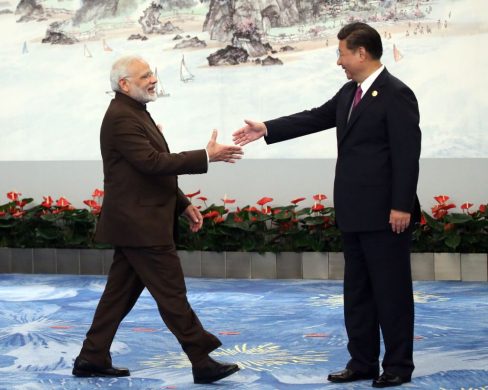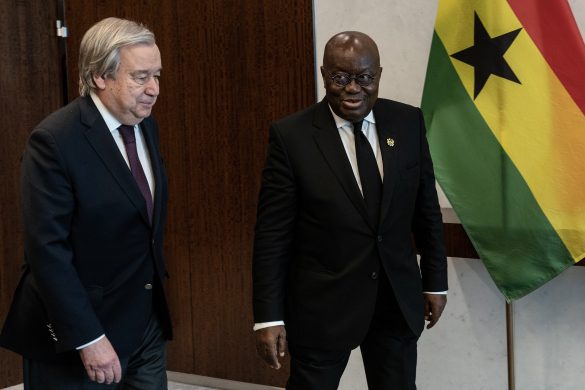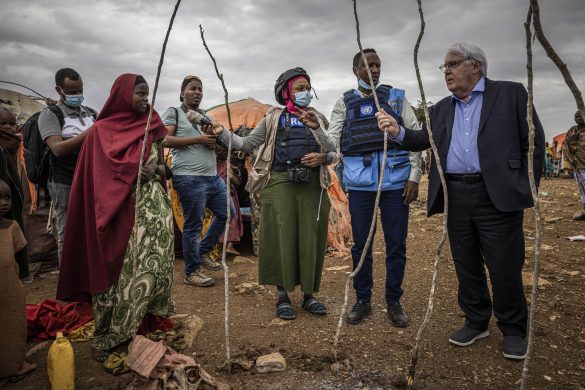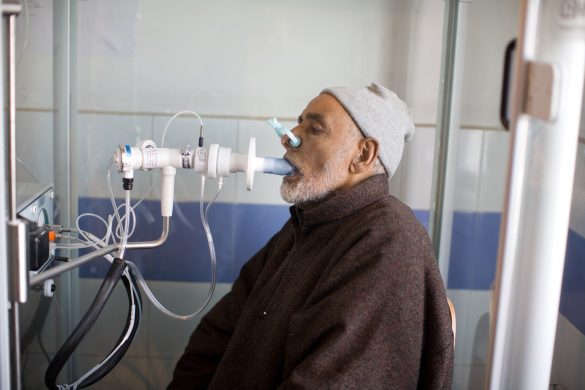Uroligheder i Rakhine-delstaten i Burma forhindrer flygtninge fra den etniske gruppe rohingya i at vende hjem. De venter længe i flygtningelejre og asylcentre uden den store udsigt til, at de kan få lov at blive integreret i de lande, de er flygtet til.
MAKASSAR, 25 April 2014 (IRIN): When Mohammed and Minara Ali ran from their burning home in Sittwe, capital of Burma’s Rakhine State, nearly two years ago, they had no idea where they were going or how they would get there.
“To save our lives, we ran away,” said Mohammed. “The military were shooting at us; my father was killed by the shooting and until now, I don’t know what happened to my two younger brothers.”
Mohammed, 35, and his wife, Minara, 26, are Rohingya – an ethnic, Muslim minority group who have faced decades of persecution and discrimination in Burma. Burmese law does not recognize them as citizens, hampering their access to healthcare, education and employment.
The Alis joined thousands of Rohingya who were fleeing riots that had erupted between the majority Rakhine Buddhist population and local Rohingya residents in June 2012.
They boarded a crowded boat and used Minara’s wedding ring to pay for their passage.
After many days at sea, they reached Malaysia where Mohammed found work labouring in paddy fields.
However, local police regularly stopped him and confiscated his meagre salary and after six months during which the Alis’ asylum application remained undecided, survival had become almost impossible.
They decided to sell what was left of Minara’s wedding jewellery to pay a smuggler to organize their passage to Australia from Indonesia.
“After two days, the [boat’s] engine broke down and we were floating at sea for three days,” recalled Mohammed.
“Then we came to an island, but there was no food there, only monkeys, so someone phoned the police to come and rescue us.”
They spent the next year in detention in Jakarta – five months in separate cells at the city’s immigration headquarters and the remaining time at an immigration detention centre where they were able to apply for asylum.
“We suffered a lot in detention,” said Mohammed. “There were many mosquitoes and it was dirty and, in the first place, we weren’t allowed to talk to UNHCR [the UN Refugee Agency] or IOM [International Organization for Migration].”
After being granted refugee status two months ago, they were moved to accommodation managed by IOM in Makassar, a bustling city on the southwest coast of Indonesia’s Sulawesi Island. IOM also provides them with a small monthly stipend to buy food and basic necessities.
”We’re free here, but we always have tension, thinking about my mother and other siblings [in Myanmar],” said Mohammed.
”From here, we can’t assist them.”
Barred from working
Læs hele artiklen på http://www.irinnews.org/report/99991/rohingya-refugees-in-indonesia-await-resettlement-that-never-comes














